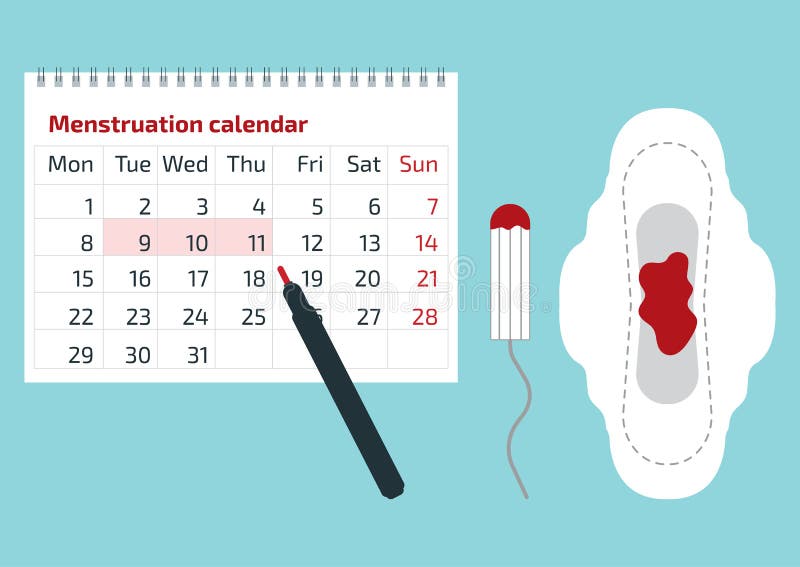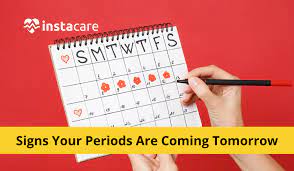According to an article published by the WebMD, 10 Signs Your Period Is Coming.

You are erupting.
At this time of the month, acne is a common issue. Due solely to hormones, adult women develop acne much more commonly than adult men. Cyclical acne refers to acne outbreaks brought on by periods. Before the start of your period, your body creates extra oil, or sebum, which clogs pores and results in pimples. You might get breakouts on your chin and jawline before or during your period.
Your breasts hurt or are enlarged.
At this time of the month, cyclical breast discomfort is the term for breast pain that fluctuates with menstruation. From a few days after ovulation until the beginning of your period, your breasts may feel sensitive or swollen. Changes in the hormones progesterone, oestrogen, and prolactin, which are generated during lactation, may be to blame.
You want to sleep but are too exhausted.
For many women, tiredness is a vicious circle at this point in their cycle. Hormonal changes may be a factor in fatigue and restless sleep. The alterations in oestrogen and progesterone, particularly those that occur while you’re sleeping, may also make you feel hotter. Your chances of getting a good night’s sleep increase if your body temperature drops.
You have cramps.
Cramping in the lower abdomen is the most common menstruation symptom. Primary dysmenorrhea is the term used to describe pains that come on either before or during your menstruation. Cramps often start a few days prior to your period and linger for 2-3 days, in contrast to many other symptoms that start 1-2 weeks prior to your period and stop once bleeding begins.
You experience diarrhoea or indigestion
Usually, stomach issues are at their worst shortly before a period. Congestion has an effect on some women. Diarrhea is a common condition.
You can read more of such stories at The Cheer News
You get bloating and gas.
Another common issue is water retention. Premenstrual bloating is hormonal as well, but you can reduce it by cutting back on sodium, increasing your intake of fruits and vegetables, and working out frequently.
It hurts in your mind.
If you experience headaches before to your period, your oestrogen levels may be shifting. If you frequently experience migraines, you’ve probably noticed that they typically begin before your period.
You go through mood swings.
Your emotions may be impacted by the hormonal changes that physically cause period symptoms. You can cry out in fits or experience rage and frustration.
You’re depressed and anxious.
PMS, depression, and anxiety are frequently connected. Most women who seek treatment for menstrual-related issues exhibit some level of anxiety or depression. Your premenstrual symptoms could worsen if either disease runs in your family.
A pain in the lower back.
Not just the stomach is effected by period symptoms. Contractions that you may also feel in your back or thighs are brought on by modifications in the prostaglandins, which are organic chemicals that line the uterus.
You can read more of such stories at The Cheer News and Credible News


